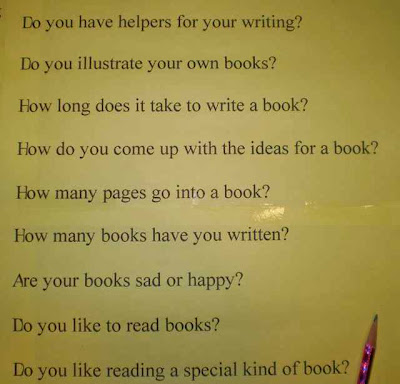If you're not kin to me, you can probably skip this post.
My roots run deep into Franklin County, so I'm interested in county history. And I'm interested in family history, too—who my ancestors were and where they came from.
I'm the third generation owner of Smith Farm in Union Hall. My grandparents, Joe and Sallie Smith, lived there for a half century. Here's a picture of them celebrating their 50th wedding anniversary. I was a little kid then—over a half century ago—but I remember being there that day.
An earlier picture of Joe and Sallie Smith —and a later one.
According to the old marriage record books in the Franklin County Courthouse (Book 2, #28) Joseph Robert Smith and Sallie Lee Brown were married on March 18, 1903, by Silas O. Plybon. She was the daughter of Will D. Brown and his second wife, Julia Forbes Brown. He was the son of Henry Silas Smith and his second wife, Mariah Louisa Martin Smith.
Henry Silas and Mariah are buried on the old Smith place, about a mile or two from my Smith Farm. The old Smith house, originally built in the late 1700s by a Mr. Street and which has been added to, still stands. The original part is between the two wings.
The gravestones near the house mark where Mr. and Mrs, Street are buried. The old Smith cemetery is in the woods on another part of the property.
Update: Picture of Mariah Lousia Martin Smith—known as Lula—added. She is sitting on the porch of their home in Union Hall.
Mariah and Henry Silas's graves are in old Smith cemetery across the creek and up the hill from the house:
Mariah's stone has been broken. Here's a closer look:
And a closer look at Henry Silas's stone:
Henry Silas Smith's first wife was Nannie J. Powell, who died in 1872; she was born 1855 in Pittsylvania County. Henry Silas's parents were Samuel Wood Smith (5 Aug. 1813 to Dec. 1877) and Letitia Holland (Malinda Letitia Holland, (1818? to 14 Feb 1886). Samuel's parents were John W. Smith and Lucy English (daughter of George Lewis English and Ann Smith). Ann (Nancy) Smith was the daughter of John Smith, possibly the son of Samuel Smith and Griselle (Grissel) Locker who were married in Prince George County, MD 26 Sept. 1732. This Griselle was daughter of Thomas Locker and Eleanor (Ellinor) Evans. [Update: Probably the son of Samuel Smith of Essex County, Virginia, and his wife Grissel Coleman. Apparently in the vicinity at the time were two Samuel Smiths, each married to a Grizzel/Grissel. It's more likely that my line is the Samuel Smith/Grizzel Coleman line from Essex County. This Grizzle's father was Thomas Coleman, and the first name "Coleman" was given to one of Col. John Smith's sons. Coleman also appears as a name of some of his descendants. Consequently, I'm pretty sure my 6th great-grandmother was Grissel Coleman, not Locker.
NOTE: On Wikitree there is posted misinformation about Samuel Smith and includes some info I have posted here. I did not give my permission for any part of this blog-post to be used on Wikitree. Note: I removed the misinformation.]
So, I descend from two Smith lines—the Samuel W. Smith/John W. Smith line and the Colonel John Smith/Samuel Smith line. Confused yet? At the annual Holland reunion, I saw a notebook listing the descendants of Samuel Smith and his wife Grisley (Griselle) (Grissel) Locker so I took a picture of it. [Update: The names of the children in the notebook match the Smith-Coleman line, not the Smith-Locker line. Children in the Smith-Locker line were Elizabeth, Elinor, Sarah, Charity, Septima, Zadock, Catherine, John, Solomon, and Samuel—who were all born in Prince George County, Maryland. Only three of these "Prince George" Smith names—the common names Elizabeth, John and Samuel—appear in my Smith line.]
I also photographed some pages about the Smith/Holland connection. This page (below) shows the Malinda Letitia Holland/Samuel Wood Smith connection:
Their son, Henry Silas Smith, shows up in the 1860 and 1870 census on this page:
I noticed what I was pretty sure was an error on this page in the Holland notebook:
It says that Maria (Mariah) Louisa Martin married Henry Silas Smith in 1878. I was pretty sure they were married in 1876, and my grandfather was born the following year. So, I did some checking. Marriage Book 1, page 132, at the courthouse gave me the correct answer. Their names are on the top row; they got the marriage bond on August 10, 1876 :
The parents of both husband and wife are listed—Samuel W and "Latitia" Smith, and John R and Elizabeth Martin:
. . . and their marriage was performed by Joseph Parker on August 17, 1876.
Today, the shed that was behind Joe and Sallie in their 50th anniversary picture still stands.
Their cabin, built in the mid-1800s by a previous owner and clapboarded later when Joe Smith had a sawmill, also still stands, but it's showing its age.
Eventually, I hope to find out—or straighten out—my Smith line, or lines. Meanwhile it's been interesting trying to sleuth out information.
~
Labels: family history, Smith Genealogy, Union Hall VA



























































